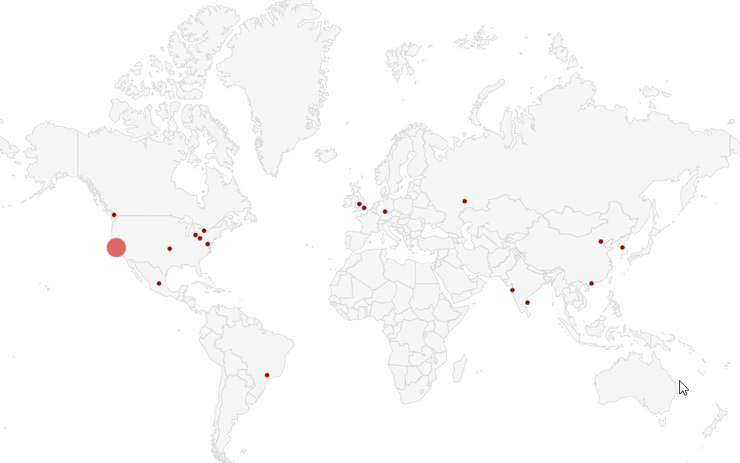Elm Analytics - Automotive Supply Chain Risk Digest #62 - April 13 - 19, 2018
BANKRUPTCY
GM is threatening bankruptcy in South Korea if labor costs can't be restructured today.
Liberty House and Deccan Value have bid for bankrupt Castex Technologies. Castex is a casting component manufacturer and a subsidiary of Amtek Auto. Amtek Auto and three subsidiaries (Castex Technologies, Metalyst Forgings and ARGL) are facing insolvency proceedings in Mumbai.
CHANGE IN MANAGEMENT
GM Canada president Stephen Carlisle is leaving to take over as president of Cadillac. He will be replaced by Travis Hester, the current VP of global product programs at GM.
Yves Caracatzanis will become the new CEO of Russian automaker Avtovaz as of June 1. Currently, he is the managing director for Groupe Renault in Romania.
HUMAN CAPITAL
GM is cutting a shift at its assembly plant in Lordstown, Ohio due to falling sales for the Chevy Cruze. The cuts will affect around 1,500 workers.
Jaguar Land Rover is cutting 1,000 jobs at its English Solihull and Castle Bromwich plants. A source says that the cuts are due to a fall in sales that is caused by Brexit uncertainty and confusion over diesel policy.
Even with a sharp drop in 2017's injury rate, concerns of undercounted injuries may point to a culture favoring production speed over safety at Tesla.
INDUSTRY DIRECTIONS
Porsche is planning to have at least 500 fast chargers for its EVs at U.S. dealerships and highway locations by the end of 2019. The automaker says that the chargers will not be free to use, but they've yet to determine what pricing will look like.
Canadian nanomaterials company Nano One has developed a new coating technology for lithium-ion batteries that is expected to improve operating efficiency and extend the life of lithium-ion batteries.
LITIGATION
Japan's Kyocera filed a lawsuit against Germany's Preh GmbH after negotiations failed. The lawsuit regards infringement of a haptic feedback technology patent.
PLANT OPENING
Chinese automaker Haval has started building a new $1B plant in Yangchuan, China. The plant will start production in late 2019, have an annual production capacity of 250,000 cars, and will employ around 10,000 people.
Honda is finally opening a new factory in Itirapina, Brazil after sitting idle since it was built in 2015. Honda will transfer vehicle production from its Sumare plant in order to increase productivity and efficiency.
Magna subsidiary Cosma International is opening a new aluminum casting plant in Telford, England this week. The 225,000sf facility will employ around 300 people and make parts for Jaguar Land Rover.
Magna has also opened a new 189,000sf body & chassis plant in San Luis Potosi, Mexico. The plant produces structural welded assemblies and will employ around 1,000 people when it reaches full production.
Nexteer Automotive is planning to open a new electronic power steering plant in Chennai, India. Production is expected to begin in the third quarter of 2018.
PLANT SHUTDOWN
After shutting down production this week for adjustments, Tesla now plans to restart production soon on a 24/7 schedule in order to meet their new goal of making 6,000 Model 3s per week by the end of June. In addition, they will be hiring 400 people per week for the next several weeks in order to meet the new goal.
REGULATION
China has announced plans to scrap restrictions that prevent foreign carmakers from owning more than 50% of a local venture. Caps will be removed for companies making fully electric and plug-in hybrids in 2018, makers of commercial vehicles in 2020, and the wider car market by 2022.
Ford, GM and FCA are working with the US Council for Automotive Research in lobbying for the US to increase the lowest octane fuel available from 87 to 95. It is being touted as a way to boost fuel economy and lower CO2 emissions.
US sanctions on Russian aluminum producer Rusal have caused a 20% jump in price this month. The sanctions are raising concern over a potential global supply shortage.
RISK ANALYTICS
Small defects cause colossal impacts. This may be why the auto industry is driving the change to measure defective parts in billions, rather than millions. This is tremendous challenge for electronics suppliers supporting mission critical systems in autonomous vehicles.








